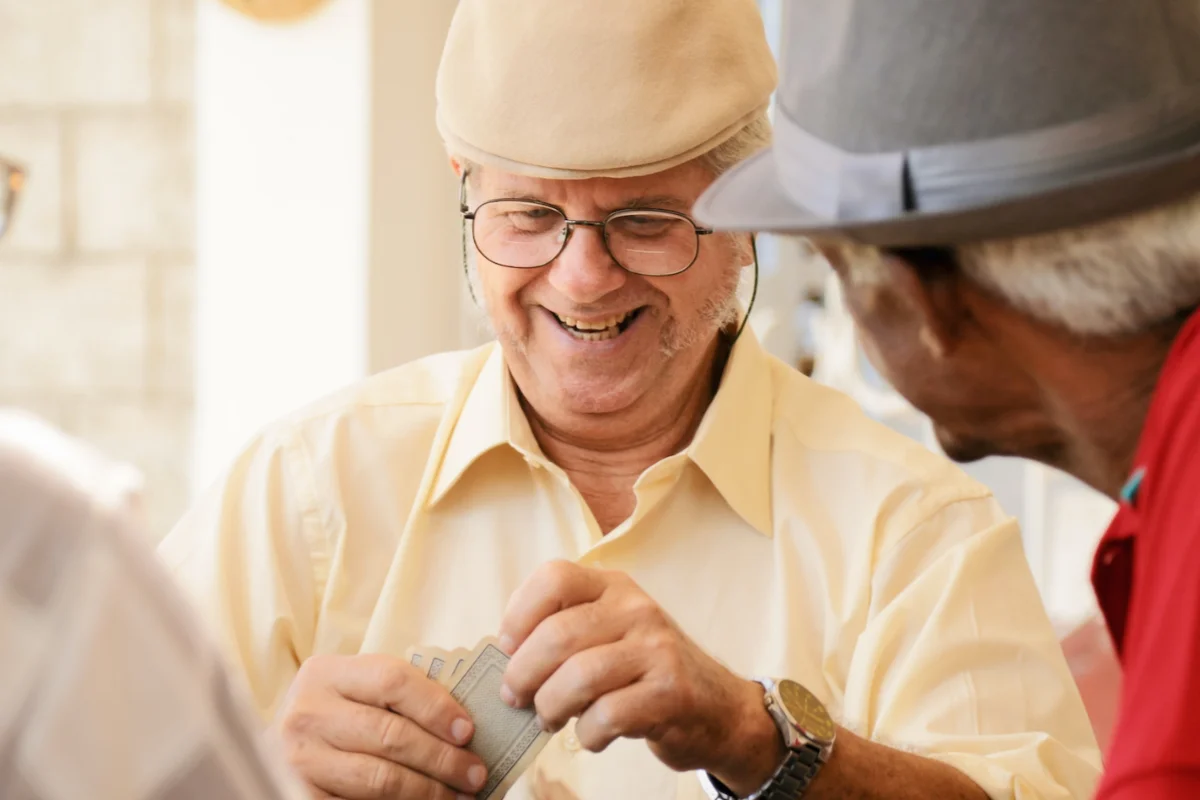Serious mood disorders, like depression, can impact every aspect of your life. It can affect how you handle daily activities, manage tasks, think, and how you feel. According to the Centers for Disease Control (CDC), up to five percent of the elderly population in the U.S. suffers with depression. Older adults are actually at a greater risk for depression and mood disorders. The CDC reports that up to 80 percent of seniors have at least one chronic health condition and up to 50 percent of older adults have two or more chronic conditions. Depression tends to occur more often in people who suffer from other illnesses, such as cancer or heart disease.
In some cases, it is more difficult to recognize depression in older adults. Often, seniors feel tired, grumpy or have trouble sleeping as part of the natural aging process. Confusion or forgetfulness can look like a memory disease, rather than a mood disorder. And older adults generally take more medications, which may cause depressive symptoms. Because of these issues, it is important to understand the signs of depression in seniors, the common causes and the best treatments when depression does occur.
What is the Most Common Cause of Depression in Older Adults?
Many, many life changes come as part of the aging process. Some can be new and exciting; others are more challenging. While there are numerous causes for depression in people at any age, life changes are often the most common cause of depression in older adults. The most frequent causes include:
- Reduced sense of purpose. Physical limitations can put a stop to activities you love, while retirement can create a loss of status, identity and self-confidence, all of which can increase the risk of depression.
- Fears. Concerns about health issues, fear of dying or stress regarding the ability to pay for health care can all create ongoing anxiety.
- Recent losses. Loss is difficult at any age. Experiencing the passing of family members, friends, spouses or partners can lead to grief and are common causes of depression in seniors.
- Health issues. Chronic illness, pain, a decline in physical abilities and illness can all be isolating and frightening, and are all frequent contributors to depression.
- Loneliness and boredom. The terms boredom and depression often go hand-in-hand for seniors. The loss of driving privileges and decreased mobility can often reduce a person’s ability to socialize or participate in activities outside the house. Living alone or a dwindling social circle can also make it challenging for seniors to enjoy the company of friends. Loneliness, isolation and boredom are common causes of depression.
Treating Depression in Seniors
In order to recognize when a senior is struggling with depression, it helps to know the signs. Here are a few to watch out for:
- Irritability or restlessness
- Loss of interest in hobbies or activities once enjoyed
- Fatigue or loss of energy
- Feelings of helplessness
- Trouble remembering or making decisions
- Persistent aches, pains or digestive troubles
- Loss of appetite or over-eating
- Insomnia
- Thoughts of suicide
- Feelings of worthlessness or a pessimistic outlook
While the idea of experiencing depression can be frightening, most cases are treatable in older adults. The right treatment can even help to improve your overall health and improve your quality of life. With some treatments, you may see improvement right away, while others may take several weeks. Here are four of the most common treatments for depression in seniors:
- Antidepressant Medications
One of the most common questions asked by loved ones with depression is, “What is the best antidepressant for the elderly?” Consult with your doctor, discuss your health conditions and your symptoms and your physician should be able to make a recommendation for a medication. While it may take more than one attempt to find the right medication for you, overall, antidepressant drugs are proven to help improve concentration, mood, sleep and appetite.
- Psychotherapy
Therapy can be a very effective and beneficial non-pharmaceutical treatment for depression in seniors. While the effects of therapy may vary by individual, the feeling of support provided by therapy and the opportunity to share feelings or learn coping skills can help seniors manage major life changes.
- Regular Exercise
The National Institute on Aging reports that exercise is one of the most important components of health for seniors. Regular exercise increases blood flow to the brain, which improves mood and reduces anxiety. In senior living communities, like Carnegie Village Senior Living Community, exercise programs and fitness equipment are readily available.
- Staying Active
Depression can cause seniors to want to be less active and less social. However, remaining engaged in everyday life is one of the best ways stay mentally and physically healthy. Senior communities, like The Atriums Senior Living Community, offer many ways for older adults to stay socially active and to participate in hobbies they enjoy. Activities range from walking the scenic trails to participating in instructor-led exercise classes and taking part in game nights.
How Can the Elderly Improve Mental Health?
Tutera Senior Living’s independent living communities, including Carnegie Village and The Atriums, are committed to helping you achieve your mental and physical health goals. We understand the importance medication, activity, socialization, exercise and psychotherapy can play in treating depression. To support these efforts, Carnegie Village residents enjoy access to:
- Fitness and nutrition programs
- Educational classes
- Bridge and bingo
- Sewing club
- Yoga programs
- Book clubs
- Gardening
- Guest speaker events
- Happy hours
- Live entertainment
- Spiritual study and services
- Therapy gym classes
- Community councils
- Wii™ bowling
- Psychiatry, Neurology, Nephrology and Gerontology
- Occupational, Physical and Speech Therapy
Among other amenities and daily activities, The Atriums offers access to The Atriums Taxi. Residents use the taxi to avoid concerns about weather conditions and car maintenance, while continuing to be active in the community. The Taxi takes residents on outings, to run errands, to appointments and everything in between!
Learn More
Do you have questions about independent living? We have answers! Call Tutera Senior Living today at 877.988.8372 to learn more and to find a community in your area.






